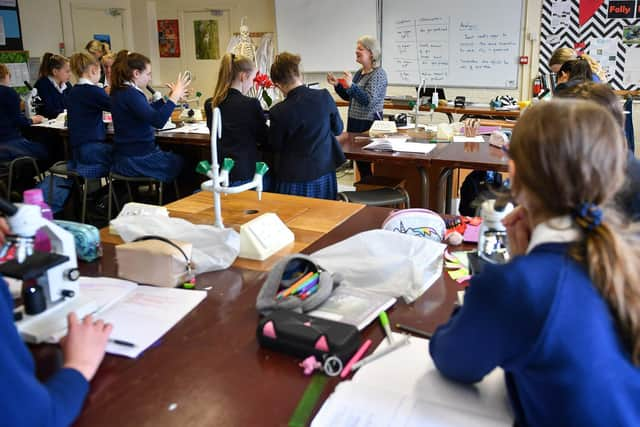Why the young are most likely to have their finances ruined by the pandemic - Sarah Coles
But right now, I wouldn’t go through my youth again for all the collagen in the world, because there just aren’t enough upsides to make it worth the horrible financial stress young people are facing.
A study by the ONS found that younger people are more likely to have had their finances damaged by the pandemic, more likely to have borrowed to get by, and those who were already in debt were more likely to have borrowed more.
Advertisement
Hide AdAdvertisement
Hide AdThe FCA, meanwhile, found that those aged between 18 and 34 were the most likely to have seen their financial resilience destroyed over the past year.


For this generation, hope for the future is decidedly thin on the ground too. The younger you are, the more concerned you are about your position over the next six months, with 61 per cent of those aged 18-24 and 55 per cent of those aged 25-34 worried about the future.
Part of the problem is that, on average, younger people have far less put aside for this kind of emergency. It means they don’t have the financial safety nets we build as we get older, so they need help from the Government at a far earlier stage.
To make matters even less fair, young people who had been doing the right thing and set up a Lifetime ISA to save for a first property or for retirement, hit an unexpected bump in the road.
Advertisement
Hide AdAdvertisement
Hide AdMeans testing for Universal Credit means that as soon as you have savings of £6,000 or more, it impacts your benefits.


This excludes pension savings, but includes any money you have in your Lifetime ISA. The argument is that if you have a tidy sum in a LISA, you can get your hands on it in an emergency.
The problem with that argument is that if you wanted to access cash in your LISA before the age of 60, for any reason other than to buy your first home, you’d have paid a 25 per cent penalty. This didn’t just remove the Government 25 per cent bonus, but an additional 6.25 per cent of your own money too.
The Government realised the problem, and cut the penalty to 20 per cent until the end of the tax year, so anyone accessing cash would only lose the benefit of the Government bonus. It made the change retrospective too, so anyone who had taken out cash since the onset of the crisis had the extra penalty refunded.
Advertisement
Hide AdAdvertisement
Hide AdBut the deadline is fast-approaching when the penalty rises again. We know life remains insecure for young people, and many of them are worried about their circumstances getting worse, so we need to see the cut to the penalty made permanent.
This is partly because nobody should be penalised for trying to do the right thing, but it’s also because without a cut, it’s incredibly difficult to continue saving and investing for the future in uncertain times.
There’s always the risk you’ll need to access the cash and so there’s always the risk you’ll pay the penalty.
Young people are facing enormous challenges at the moment, but they don’t have to do it alone, because there are things their family and friends can do to help. In the case of the LISA, a colleague of mine has launched a petition to parliament, https://petition.parliament.uk/petitions/570826, which you can find by searching ‘LISA petition’.
Advertisement
Hide AdAdvertisement
Hide AdSo far it has enough signatures to secure a Government response, but with more, it will ensure a debate in Parliament.
It’s also worth having a conversation with the young people in your life about how they’re managing, to see what you can do to help support them. Help comes in all sorts of guises.
Some will need a place to stay for a while if times are really tough. Others have run up debts and need someone to help them get back on track. Some simply haven’t yet got to grips with the ins and outs of drawing up a budget and cutting costs, so you may have valuable experience they can learn from.
If you have the means, one of the biggest differences you can make to younger members of your family is by providing an inheritance. If you’re confident you can spare the cash, your gift could make an enormous difference to them before you die.
Advertisement
Hide AdAdvertisement
Hide AdThis will not only help them through the pandemic, but can save tax too. You can give gifts of £3,000 a year which fall outside your estate for inheritance tax purposes immediately, but you can also give gifts of any size, and if you live for another seven years, they won’t be counted as part of your estate either.
As a stroppy teenager, at the end of an epic rant about the injustices in life, I turned to my dad to restore some justice to the world and his memorable response was “I’m glad I’m not you”.
In the current environment, while this is a perfectly understandable reaction to seeing the horrors facing young people, we need to go further.